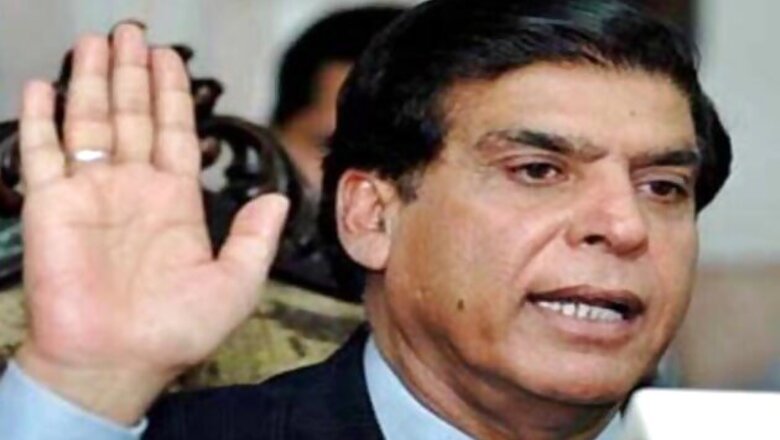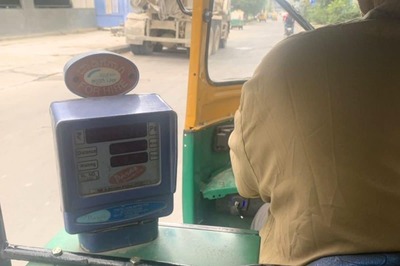
views
Islamabad/Lahore: Prime Minister Raja Pervez Ashraf will appear in the Supreme Court on Monday to face a contempt charge though a section of the ruling Pakistan People's Party is opposed to any move that could be perceived as a climb-down in the standoff with the judiciary.
President Asif Ali Zardari, who is also the head of the PPP, decided that the premier would appear in court after a late night meeting with leaders of the ruling coalition, officials said.
During the 90-minute meeting held at the presidency, Law Minister Farooq Naek briefed the leaders on the options available to the government to tackle court cases against the government.
The PPP's allies advised the ruling party that it would be better for the premier to appear in court and avert any fresh confrontation with the judiciary, sources said.
"Accordingly, Prime Minister Raja Pervez Ashraf would appear before the Supreme Court on Monday in response to the notice issued to him. It was further decided that as a demonstration of solidarity, the coalition partners will accompany the Prime Minister to the court room," said presidential spokesman Farhatullah Babar.
The coalition partners resolved to "remain united in facing all the challenges confronting the government and the Prime Minister", Babar said.
The apex court has summoned Ashraf to appear on August 27 to face a contempt of court charge for refusing to revive graft cases against President Zardari in Switzerland. Earlier, a close aide to the premier said that Ashraf would appear in court.
"The emerging consensus is that the Prime Minister will appear in court tomorrow though some leaders are totally opposed to the move," the aide, who did not wish to be named, said.
"There are some leaders who feel that the judiciary has crossed all limits and that the premier's appearance in court will make no difference to the ongoing standoff," said the aide.
Ashraf's predecessor, Yousuf Raza Gilani, was convicted of contempt and disqualified by the apex court in June for refusing to reopen the cases against Zardari. Legal experts have said Ashraf could face the same fate as Gilani.
During his appearance in court, Ashraf is expected to tell the judges that he has not committed any contempt as the PPP has taken a principled stance on not writing a letter to the Swiss authorities about reopening the graft cases against Zardari.
The premier is also expected to tell the judges that he enjoys immunity under the Constitution for his actions and is not answerable to the courts.
The PPP's decision on Ashraf's appearance in court was influenced by the thinking of its close allies like the Muttahida Qaumi Movement and the Awami National Party, which are opposed to any confrontation between the government and the judiciary ahead of the general election scheduled for next year.
Another PPP leader, who participated in a meeting of the PPP's core committee that was chaired by Zardari on Friday, too said Ashraf would appear in court on Monday. "Yes, he is going to the court," the leader said in Lahore.
The leader said that since Ashraf had not issued any "anti-judiciary statements" since he assumed office after the apex court disqualified his predecessor Gilani, the Supreme Court had no "moral ground" for charging him with contempt.
"Unlike Gilani, the Supreme Court can't be harsh with Ashraf as he has not said a word against Chief Justice Iftikhar Chaudhry or the judiciary," the leader said. "We also believe that the PPP will gain by the Prime Minister's appearance in court," he added. Fawad Chaudhry, an adviser to the premier and a member of his legal team, said that a good number of PPP stalwarts, including Gilani, did not want Ashraf to appear in court.
"I am also against the premier's appearance in court but either way, the PPP stands to gain," he said. The apex court has been pressuring the PPP-led government to revive the cases against the President since December 2009, when it struck down a graft amnesty that benefited Zardari and over 8,000 others.
The PPP has refused to act, saying the President enjoys immunity from prosecution in Pakistan and abroad. PPP leaders have also accused the judges of acting in a biased manner, saying the apex court has only focussed on Zardari and not the other beneficiaries of the graft amnesty.



















Comments
0 comment